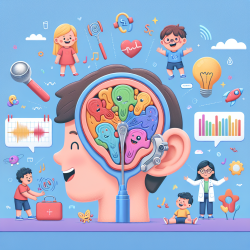As practitioners in the field of speech-language pathology, our goal is to create optimal outcomes for children, especially those with developmental language disorder (DLD). A recent systematic review by Ziegenfusz et al. (2022) provides crucial insights into the academic achievements of primary and secondary school-aged students with DLD. This blog aims to distill these findings and offer practical steps to enhance your practice and encourage further research.
Key Findings from the Systematic Review
The review examined 44 studies published between 2008 and 2020, focusing on the academic performance of students with DLD. Here are some significant findings:
- Students with DLD consistently show lower academic achievement compared to their typically developing peers across all measured curriculum areas.
- Most studies concentrated on literacy skills, such as reading, spelling, writing, and narratives, with students with DLD showing significant challenges in these areas.
- Numeracy skills were also affected, although fewer studies have focused on this area.
- Despite these challenges, individual variability was noted, with some students demonstrating strengths in specific areas.
Implications for Practice
Based on these findings, here are some evidence-based strategies to support students with DLD:
- Early Identification and Intervention: Early assessment and intervention are crucial. Regular monitoring of language, literacy, and numeracy skills can help identify areas needing support.
- Collaborative Approach: Foster collaboration between speech-language pathologists and educators to develop and implement individualized education plans (IEPs) tailored to each student's needs.
- Focus on Literacy: Given the strong emphasis on literacy skills, targeted interventions in reading, spelling, and writing are essential. Use evidence-based programs that integrate oral language skills with literacy instruction.
- Support Numeracy Development: Incorporate strategies that reduce the language load in numeracy tasks, such as using visual aids and manipulatives.
- Continuous Professional Development: Stay updated with the latest research and best practices in supporting students with DLD. Attend workshops, webinars, and conferences to enhance your skills.
Encouraging Further Research
While the review provides valuable insights, there are still gaps in the literature, particularly in numeracy and broader curriculum areas like science and humanities. Future research should explore these areas and investigate the impact of different educational settings and interventions on academic outcomes for students with DLD.
By understanding the academic challenges faced by students with DLD and implementing evidence-based strategies, we can make a significant difference in their educational journey. To read the original research paper, please follow this link: A systematic review of the academic achievement of primary and secondary school-aged students with developmental language disorder.










